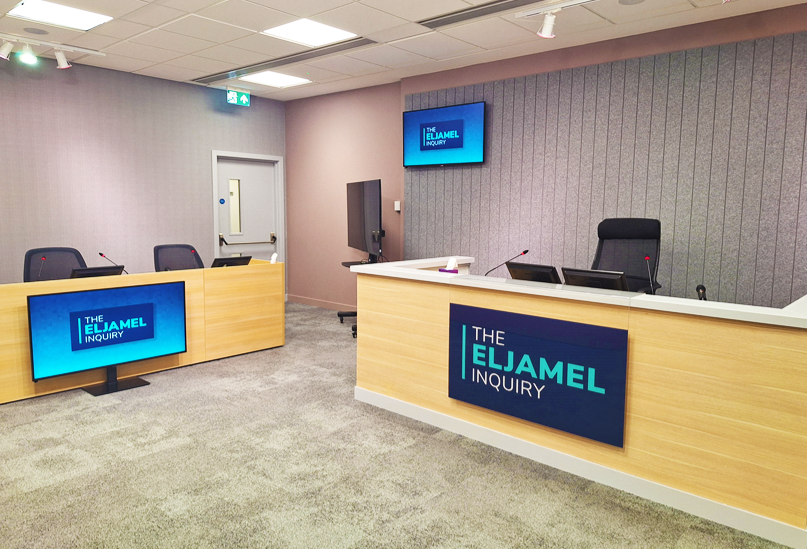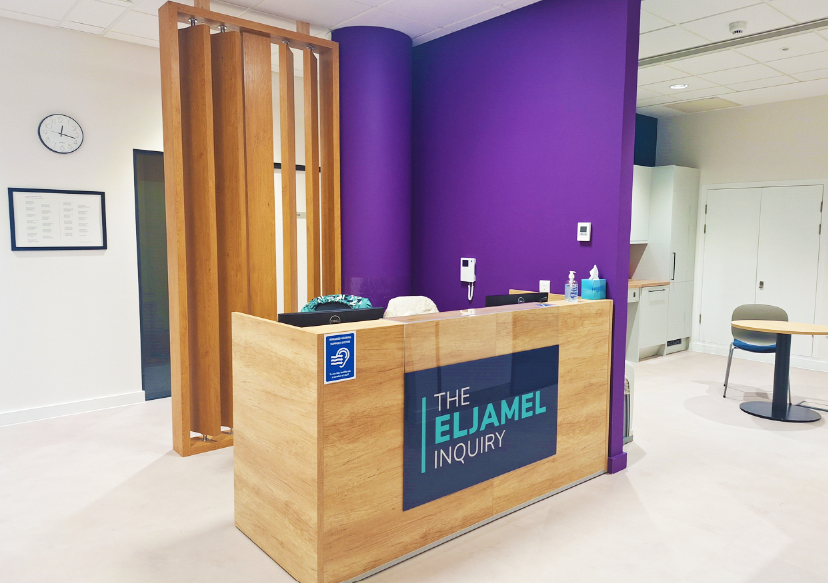What is a Preliminary Hearing?
The Eljamel Inquiry is preparing to hold a Preliminary Hearing in Edinburgh.
Here we explain a bit more about what happens during a Preliminary Hearing and its purpose.
The Inquiry has announced a Preliminary Hearing - what happens now?
The Eljamel Inquiry has announced plans for a Preliminary Hearing on 10th September.
This will be the first public hearing which the Inquiry has held since it was formally set up in April 2025.
What is a Preliminary Hearing?
The Eljamel Inquiry will hold two types of hearings: evidential and non-evidential.
During evidential hearings, witnesses give evidence under oath to the Inquiry, usually in person in the hearing room.
They are questioned by Counsel to the Inquiry.
This is how the evidence already gathered by the Inquiry - such as written statements or other documentary evidence - can be set out in public, examined and, where necessary, challenged by the Inquiry.
It is also the way the Inquiry can seek additional evidence from witnesses. This is important to address gaps in the evidence which the Inquiry has found so far.
The evidence gathered during these oral hearings is considered alongside all the written evidence to help the Chair of the Inquiry reach his findings and recommendations.

A Preliminary Hearing is different
It is a non-evidential hearing.
This means no evidence will be presented during the day’s proceedings.
The purpose of a preliminary hearing like the one on 10th September is to provide an update, in public, about the progress of the Inquiry and its intentions.
It is also an opportunity for the Inquiry’s core participants to make submissions to the Chair about aspects of the Inquiry’s planning.
It is possible that the Inquiry will hold other preliminary hearings in future, where aspects of the Inquiry’s progress and planning need to be examined before the Chair in public.
What sort of things are covered at a Preliminary Hearing?
A preliminary hearing can be used to provide a wide range of important updates.
This will vary depending on the reasons why the preliminary hearing has been fixed and the stage which the Inquiry has reached.
At preliminary hearings like the one on 10th September, the matters covered may include:
- Explaining what the Inquiry has been doing and why
- Explaining what the next steps will be in the work of the Inquiry
- Setting out a timetable for the evidential hearings, along with any other logistics – for example, where hearings will take place and how they will be made accessible for those who wish to attend, and those who do not
- Explaining what issues will be covered during each block of hearings
- Providing an update on an Inquiry’s evidence gathering, including any problems it has had recovering evidence
- Explaining, publicly, any other issues which have affected the Inquiry’s work and how the Inquiry plans to resolve them
- Setting out plans for opening statements by core participants
- Hearing core participant applications and contributions
Later preliminary hearings - if considered necessary to the Inquiry’s work - may cover some of these matters as well.
But they may also be used for:
- Setting out plans for upcoming evidential hearings
- Setting out lists of proposed witnesses
- Providing details about any expert witnesses and their reports
- Setting out plans for closing statements to be made by core participants
Who will appear at the Preliminary Hearing on 10th September 2025?
The Eljamel Inquiry’s Preliminary Hearing will be chaired by Lord Weir, the Chair of the Inquiry.
Senior Counsel to the Inquiry, Jamie Dawson KC, will make submissions on behalf of the Inquiry.
Legal representatives acting on behalf of core participants will also be invited to attend. They can choose to make submissions during the hearing. They may choose to do so or they may not.
Legal representatives of the Independent Clinical Review will also be invited to take part.

What happens now?
Before the Preliminary Hearing, core participants will be sent a Note by the Inquiry’s Counsel. This document provides Core Participants with an update on the work the Inquiry, its plans and how it will be asking core participants to contribute.
It is not a public document but much of what is contained in it will be set out publicly during the hearing.
Legal representatives of core participants will be invited to make written submissions to the Inquiry in advance of the hearing.
The Note will be published after the preliminary hearing, as will any submissions made in writing by the core participants.
Prior to the Preliminary Hearing, an Agenda will be sent to core participants. It will also be published on the Inquiry’s website. The Agenda will set out the running order for the day.
Members of the public and the media can apply to attend the hearing in person.
Proceedings will also be broadcast via the Eljamel Inquiry’s YouTube channel.
